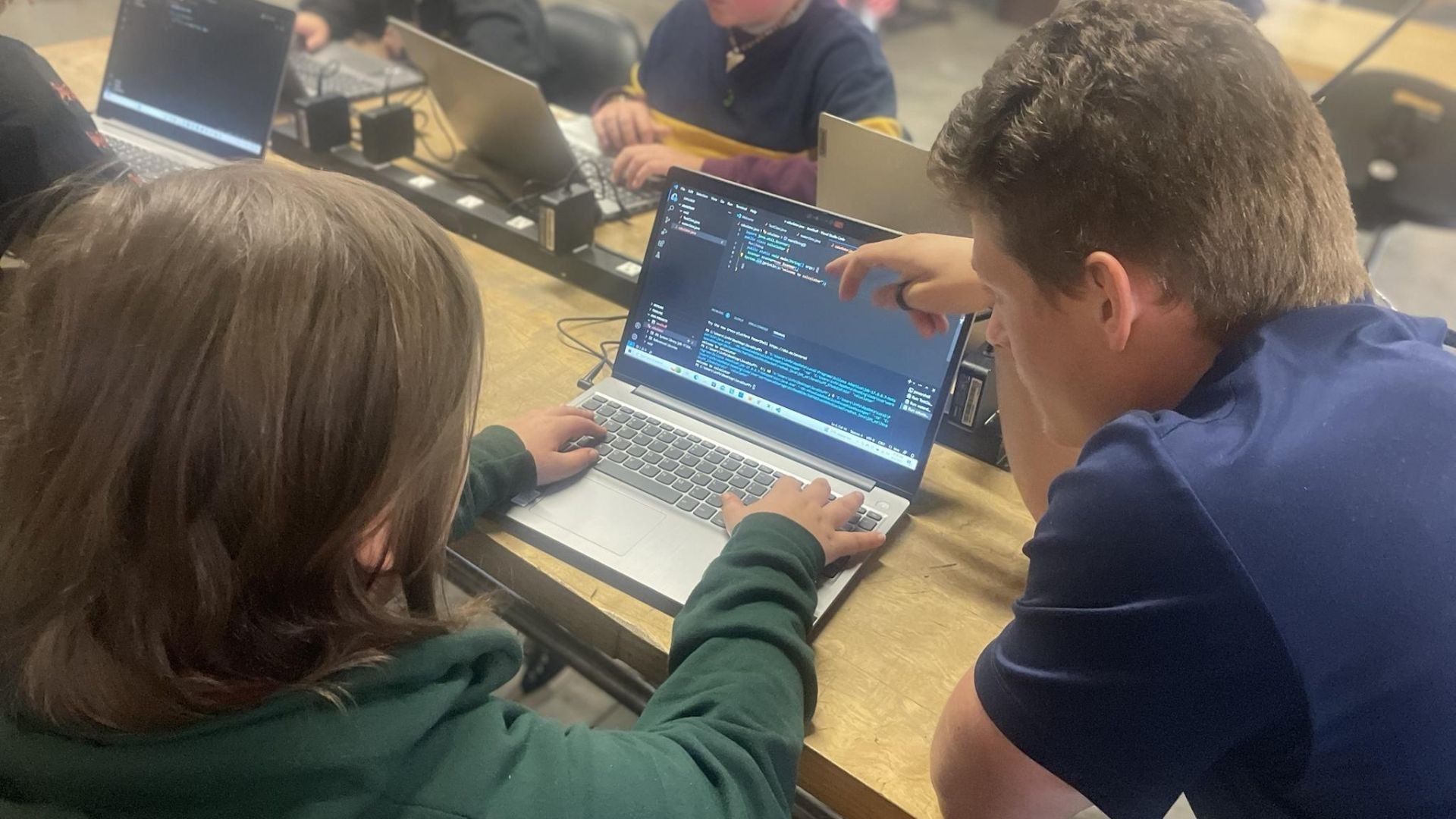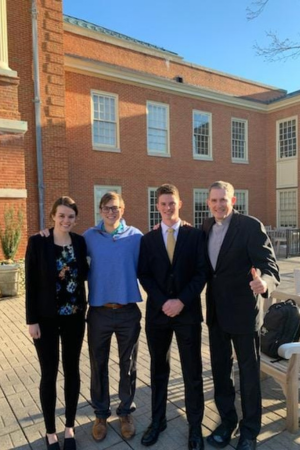Andrew Rust on Entrepreneurship and Making Tech Accessible
Andrew Rust (SEAS’24) channels his passion for making tech accessible into ByteSize Learning – a company he founded to improve computer literacy for kids. While at Columbia, he has received support to grow this venture from Columbia Entrepreneurship, Innovation, & Design.

Growing up in New Bern, North Carolina, Andrew didn’t have much access to technology education, something he was “indignant” about. “I was very frustrated at the fact that no one seemed bothered or to care that I didn’t know how to touch type (type without looking at the keyboard), not to mention basic computer skills I take for granted now," he said. This hunger for education followed him from childhood into high school, where he knew he needed to make some significant changes to follow his passion.

In order to access programming and tech classes, Andrew left the public school in his rural hometown to attend The North Carolina School of Science and Mathematics (NCSSM) in Durham, roughly two hours away from home. NCSSM is a public school, but a specialized and competitive one, only admitting a few hundred students each year from across the state. It’s open only to high school juniors and seniors, and many students live on campus.
At 18, Andrew finally had access to technology education and with it came an exciting possibility: a secure career that would give him a chance to help craft the digital world of the future. He began to see how our lives are becoming increasingly intertwined with technology, and that the impact of computer technology is rapidly growing. “It only takes one contribution on my end to affect change on a potentially limitless scale for others,” Andrew said.
Despite the experience he gained from attending NCSSM, Andrew still felt “pretty far behind in terms of tech education and computer literacy” when he began his undergraduate degree at Wake Forest University. Now, as a graduate student in Computer Engineering at the Fu Foundation School of Engineering and Applied Science, he’s exploring complex developments in cybersecurity, privacy, and computer networking. Still, he hasn’t forgotten the importance of basic computer skills – like installing and removing software or understanding basic file extensions – and the inequitable access to technology education that pushed him to forge the path to where he is now.
“I was always very much in favor of [ByteSize Learning] being an affordable product… I’m trying to pull people up who fell behind – just like me.”
As an undergraduate, Andrew began working on ByteSize Learning, a company that teaches technology skills to kids with a mission to fill in the gaps for those without access to tech education at school. “I thought about all the ways I could invite change of some kind… I landed on a company being the way I felt I could make the largest impact,” he said. “I’m not a politician. I’m not somebody who has a lot of control. I didn’t necessarily want to over-invest in becoming one teacher among thousands. I wanted a way to scale my impact.”
ByteSize Learning offers virtual classes in computer literacy, coding, graphic design, and more during the summer months. While at Columbia, Andrew is working to expand the company to offer virtual classes throughout the year, as well as self-paced asynchronous courses. He’s taking time to be intentional about scaling his business to ensure high-quality learning materials and affordability. “I was always very much in favor of it being an affordable product,” Andrew said. “I’m trying to pull people up who fell behind – just like me.”
He hopes that young people will see how their interest in computers and technology can become a career. “Graphic design, video editing, music production, game design… These are all lucrative and growing careers, but they are completely ignored – even at a lot of larger public and private schools,” he said.
Andrew is working closely with Columbia Entrepreneurship, Innovation, & Design to navigate the many challenges of beginning a tech company: limited budget, ensuring information reaches the right people in a crowded tech space, and limited internet and computer access for many of the students who need Bytesize Learning the most.
As an Entrepreneurship Fellow, Andrew has found mentorship and access to resources – including legal services to support his business. The fellowship also allowed him to take advantage of Columbia’s New York City network, and he attributes much of the successful growth of his startup to his fellow Columbia students.
“There's so much talent in all the different schools,” Andrew said. “There's a lot of different moving parts in business, so it's great that Columbia Entrepreneurship is connecting those dots.” Andrew describes the program as a “close-knit, mentorship-based program” and a “launchpad” for students who either want to get started in entrepreneurship or are seeking resources for an existing project.
“There's a lot of different moving parts in business, so it's great that Columbia Entrepreneurship is connecting those dots.”
When he’s not in the classroom or working on his company, Andrew is contributing to open (libre) source software. He is passionate about offsetting a lot of the privacy loss we experience when using the internet – noting that his own software is “privacy and freedom respecting for all users.”
He’s also enjoying exploring New York City, a very different experience from his small hometown. He considers his life here “like the crossover episode of a television show,” merging friend groups from high school, his undergraduate years, family, and new Columbia friends. “People congregate here,” he shared. “New York City teaches you a lot more than a textbook or a lecture.”
“New York City teaches you a lot more than a textbook or a lecture.”

Andrew Rust (SEAS’24) studies Computer Engineering and is a fellow at Columbia Entrepreneurship, Innovation, & Design. He is the founder of ByteSize Learning and a 2022 graduate of Wake Forest University.
